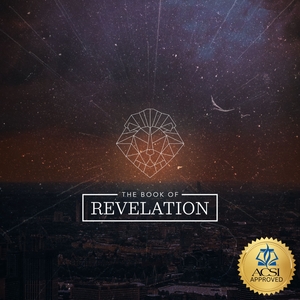I found some confusion in the Revelation Study, Lesson 5E covering Matthew 24. When Jesus discusses the fig tree parable and reference to Noah's time, isn't this alluding to signs we will see before the rapture?
In Matthew 24:30-35 Jesus is speaking of the events of Tribulation, explaining that the timing of His Second Coming will be clearly understood in the same way that we can tell when a fig tree is about to produce fruit:
Matt. 24:30 “And then the sign of the Son of Man will appear in the sky, and then all the tribes of the earth will mourn, and they will see the Son of Man coming on the clouds of the sky with power and great glory.
Matt. 24:31 “And He will send forth His angels with a great trumpet and they will gather together His elect from the four winds, from one end of the sky to the other.
Matt. 24:32 “Now learn the parable from the fig tree: when its branch has already become tender and puts forth its leaves, you know that summer is near;
Matt. 24:33 so, you too, when you see all these things, recognize that He is near, right at the door.
Matt. 24:34 “Truly I say to you, this generation will not pass away until all these things take place.
Matt. 24:35 “Heaven and earth will pass away, but My words will not pass away.
The events of vs.30-35 will be an event that can be foreknown and anticipated with fair accuracy.
Jesus’ Second Coming can be known with great precision, based on the book of Daniel. According to Daniel 9, Jesus’ Second Coming will take place one “seven” after the start of Tribulation. In other words, Christ return exactly seven years later, which is why Jesus says the people of that time can know the end is near.
In this passage, Jesus uses the second person plural pronoun, “you”, referencing a future generation of Israel that will experience these things. In other words, Jesus was speaking personally to a future Israel that will endure Tribulation. He spoke in this way expecting the believing Jews of that future generation to read Matthew 24 so they might be prepared for the trials they would face.
Now, in verse 36, the context changes:
Matt. 24:36 “But of that day and hour no one knows, not even the angels of heaven, nor the Son, but the Father alone.
Matt. 24:37 “For the coming of the Son of Man will be just like the days of Noah.
Jesus begins describing a very different event, one that no one knows. He announces the change of context with the word “but” indicating He is moving to a different day. This other day is very different than His Second Coming. In fact, not even Jesus Himself knows the timing of that day. Clearly, this is a different day, which tell us the context of Matthew 24 has changed abruptly. The passage is not perfectly chronological. The passage is organized as a chiasm, as Pastor Armstrong explains in his teaching on the Olivet discourse.
These verse describe the Rapture. Remember, the Rapture has no preceding signs and will happen without any warning at all. As Jesus says:
Matt. 24:50 the master of that slave will come on a day when he does not expect him and at an hour which he does not know,
Luke 12:40 “You too, be ready; for the Son of Man is coming at an hour that you do not expect.”
Scripture quotations taken from the (NASB®) New American Standard Bible®, Copyright © 1995, 2020 by The Lockman Foundation. Used by permission. All rights reserved. www.lockman.org





